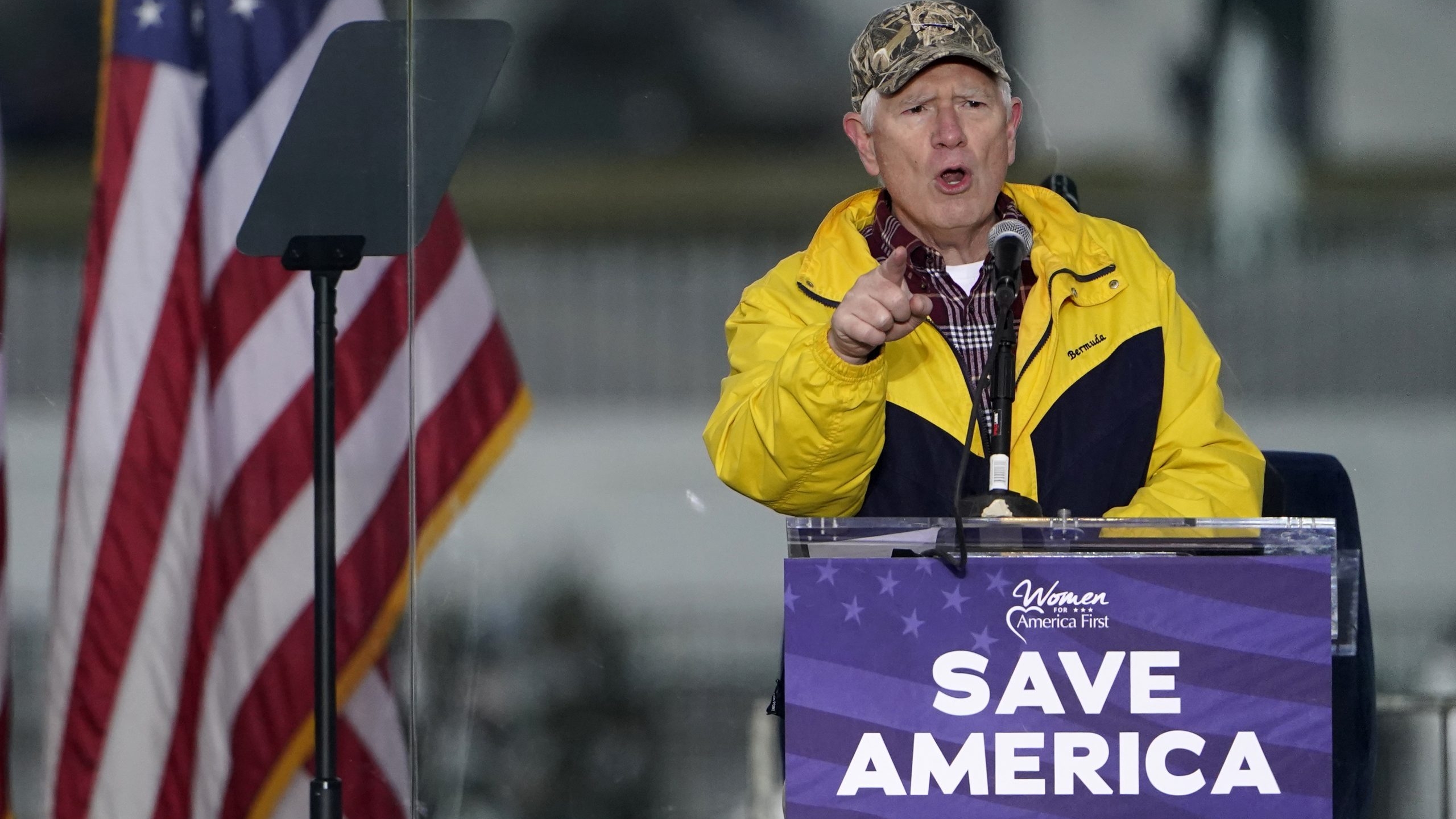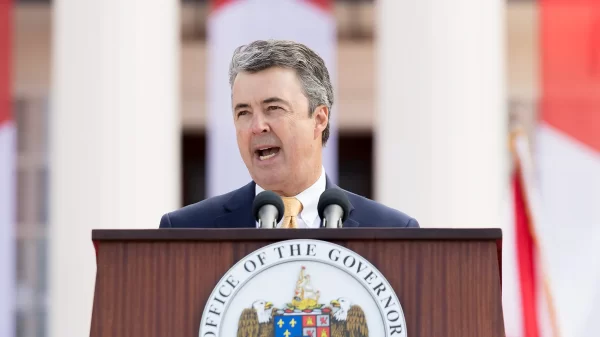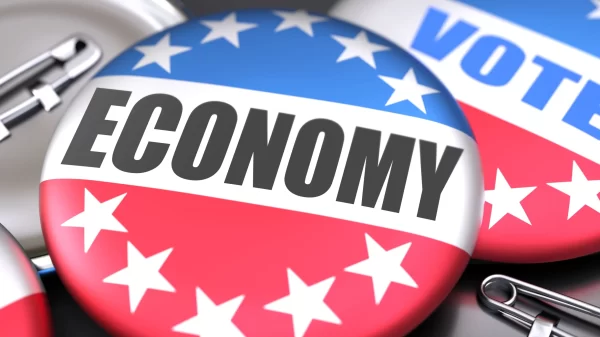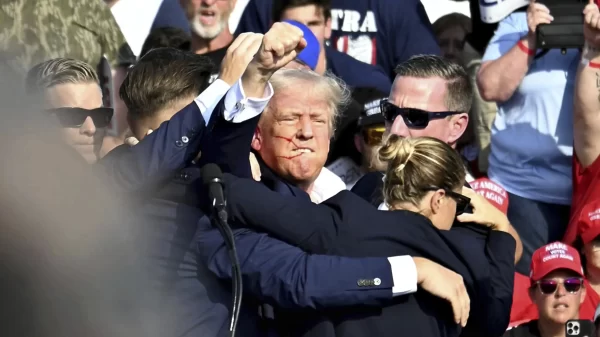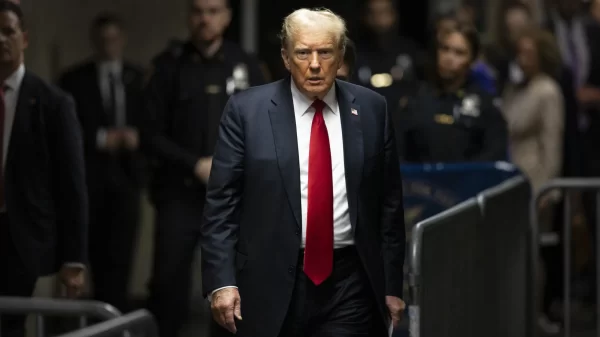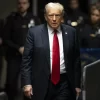The Jan. 6 Committee in letters to U.S. Rep Mo Brooks, R-Alabama, and two other Congressmen, asked for their voluntary cooperation in the continued investigation into the deadly attack on the U.S. Capitol. Brooks said Monday he wouldn’t honor the request.
In a letter to Brooks on Monday the committee centered its request of Brooks on what Brooks has publicly said of former President Donal Trump’s requests for Brooks to help overturn the election results.
The letter reads in part: “You recently made the following public comment in a televised program: “The President [Trump] has asked me to rescind the election of 2020. He always brings up, ‘we’ve got to rescind the election. We’ve got to take Joe Biden down and put me in now.’”1
The letter continues: “Likewise, in a recent press release, you made the following statements: President Trump asked me to rescind the 2020 elections, immediately remove Joe Biden from the White House, immediately put President Trump back in the White House, and hold a new special election for the presidency. As a lawyer, I’ve repeatedly advised President Trump that January 6 was the final election contest verdict and neither the U.S. Constitution nor the U.S. Code permit what President Trump asks. Period.
The committee in the letter said that the exchange Brooks disclosed with Trump “is directly relevant to the subject of our inquiry, and it appears to provide additional evidence of President Trump’s intent to restore himself to power through unlawful means.”
The committee is requesting Brooks meet with committee members during the week of May 9, but said if he cannot meet that week the committee could arrange an alternative time.
“If it would be preferable to hold this meeting with you in your district, we would also be glad to explore travel arrangements to facilitate that option,” the letter reads.
Brooks in a statement Monday said he wouldn’t attend the requested meeting.
“I’ve already given numerous sworn affidavits and public statements about January 6. At this moment and time, right before an Alabama U.S. Senate election, if they want to talk, they’re gonna have to send me a subpoena, which I will fight,” Brooks said.
“The reps run the risk that others will tell their story for them if they don’t comply,” tweeted Joyce Vance on Monday. Vance is a law professor at the University of Alabama School of Law and a former U.S. attorney in the Northern District of Alabama.
The Committee also sent a letter to U.S. Rep. Andy Biggs, R-Arizona, and to Rep. Ronny Jackson, R-Texas, on Monday. The letter to Biggs and Jackson the committee seeks their knowledge surrounding efforts by the Oath Keepers and far-right activist Ali Alexander to “Occupy the Capitol” on Jan. 6.
“First, while the January 6th attack on the Capitol was underway, members of the Oath Keepers, including its leader, Stewart Rhodes, exchanged encrypted messages asking members of the organization to provide you personally with security assistance, suggesting that you have “critical data to protect”,” the committee wrote to Jackson.
In the letter to Biggs the Committee seeks his knowledge about Bigg’s involvement with Ali Alexander.
“We are aware that Ali Alexander has stated publicly that he, along with you and two other House Members, came up with the idea to bring protestors to Washington on January 6th for the count of electoral votes,” the letter reads. “Ali Alexander is an early and aggressive proponent of the Stop the Steal movement who called for violence before January 6th.”
“We would like to understand Representative Andy Biggs Page precisely what you knew before the violence on January 6th about the purposes, planning, and expectations for the march on the Capitol,” the letter continues.
Days prior to the riot, Alexander posted a video in which he named Brooks and Arizona U.S. Reps. Paul Gosar and Andy Biggs in helping him plan the Jan. 6 rally, aimed at pressuring Congress as members counted electoral votes.
“So I want to let you guys know how we’re responding, because I was the person who came up with the January 6th idea, with Congressman Gosar, Congressman Mo Brooks and then-Congressman Andy Biggs,” Alexander said in the live stream video, which was archived by Jason Paladino, an investigator with the Project on Government Oversight.
Brooks’s spokesman told APR in January that Brooks did not plan the Jan. 6 rally with Alexander. A Rolling Stone article cited two people who helped organize the rally and other demonstrations who said Brooks or his staff helped organize the Jan. 6 rally and a series of demonstrations in several states that occurred between the election and the deadly Jan. 6 attack on the capitol.
In response to the Rolling Stone article, Brooks told AL.com on Oct. 25 that he could not say whether his staff interacted with two Rolling Stone sources because he had not spoken to them about it.
“Quite frankly, I’d be proud of them if they did help organize a First Amendment rally to protest voter fraud and election theft,” Brooks said of his staff, AL.com reported.
Brooks gave a speech at that Jan. 6 rally near the Capitol in which he told the crowd it was time to start “taking down names and kicking ass.” Brooks was wearing body armor when he gave that speech.
Brooks on Dec. 16 got a text message from Alexander, but Brooks’s spokesman 27 days later told APR the congressman had “no recollection of ever communicating in any way with whoever Ali Alexander is.”
After Alexander supplied text messages, documents and testimony to the Jan. 6 Committee about his communications with Republican lawmakers ahead of the deadly Jan. 6 attack on the U.S. Capitol, Brooks admitted to the communication, releasing the text he got from Alexander, in addition to lengthy comments appearing to attempt to downplay the significance of that communication, calling the text “100% benign.”
“Congressman, this is Ali Alexander. I am the founder of Stop the Steal, the protests happening in all 50 states,” Alexander wrote in the text, shared by Brooks. “We met years ago back in 2010, during the tea party when you were first elected. I texted the wrong number. I had intended to invite you to our giant Saturday prayer rally in DC, this past weekend. Also Gen. (Michael) Flynn should be giving you a ring. We stand ready to help. Jan 6th is a big moment in our republic.”
Asked by APR to clarify the January statement that Brooks had “no recollection of ever communicating in any way with whoever Ali Alexander is” Clay Mills, Brooks’s spokesman, in a message to APR explained that Brooks simply forgot about the text from Alexander, sent 27 days prior to APR’s inquiry.
“The text exchange between Congressman Brooks and the 202 number claiming to be Ali Alexander was so innocuous and forgettable that Congressman Brooks did not recall it,” Mills said.
Alexander is reportedly cooperating with the Jan. 6 committee.







































